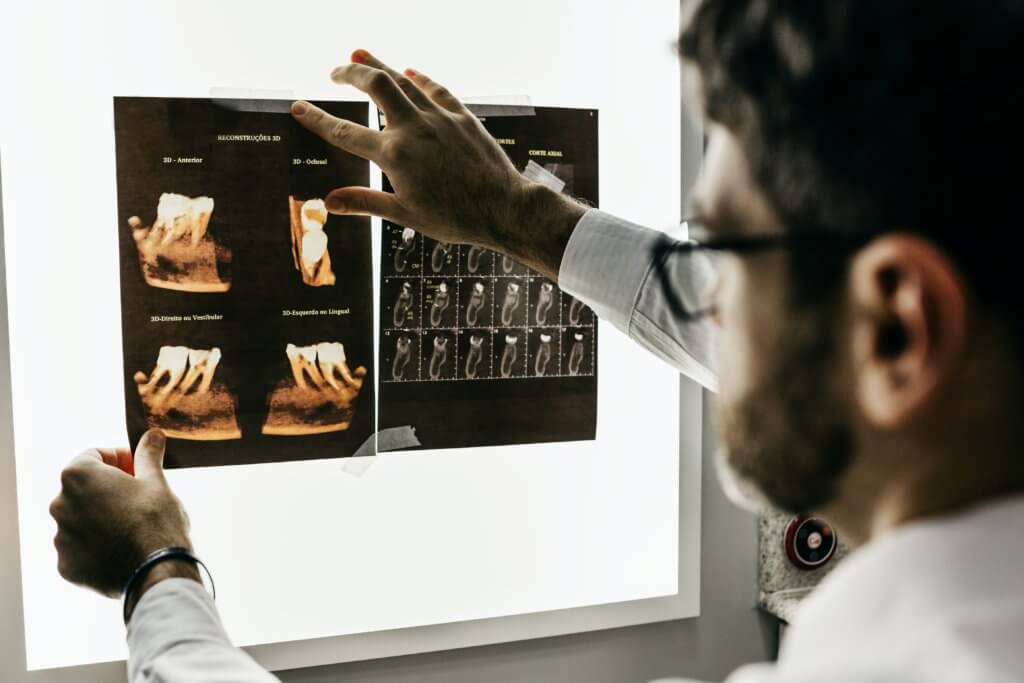What is a dental hygienist?
Dental hygienists are oral health professionals who are responsible for preventing and treating oral diseases. A dental hygienist evaluates a patient’s dental health and focuses on identifying and treating gum disease and maintaining good oral health.
Hygienists promote the importance of oral hygiene to eliminate signs of gum disease and decay which can eventually lead to tooth loss. It is recommended that patients visit the hygienist regularly, to ensure any hidden and difficult-to-reach areas are kept clean, therefore the role of a dental hygienist is vital and rewarding role.
What does a dental hygienist do?
Hygienists will carry out an initial dental hygiene examination and will then:
- Scale your teeth to remove any plaque or tartar build-up in the areas that brushing cannot reach.
- Perform a clean and polish to remove any stains on your teeth.
- Offer advice on how to maintain good dental hygiene and techniques that can be used at home.
- Provide advice about diet and preventing tooth decay.
- Spot signs of gum disease and refer you to a specialist if further treatment is required.
- Perform x-rays and make impressions of teeth.
- Reviewing the patient medical history and maintaining records.
As a dental hygienist, you can work in a general dental practice, a community dental service, dental hospital or a private company in the industry.

What skills are required to become a dental hygienist?
- Excellent communication skills — You’ll be talking to patients daily, and you’ll need to have a friendly and confident manner when dealing with people to be able to explain the process to them clearly throughout each step.
- Compassion — Many patients are anxious at the dentist, so you must be compassionate and calm when dealing with them and reassure them if they have any questions.
- Attention to detail — You’ll need to pay attention to changes in the patient’s gyms and teeth to spot abnormalities for proper diagnosis. You will also be using sharp tools, so you need to pay close attention.
- Eyesight — Hygienists need to be able to see inside patients’ mouths and spot details.
- Timekeeping and record keeping — You’ll need to update and maintain dental records of your patients so that these records remain accurate and current.
What qualifications are needed to become a dental hygienist?
You’ll first need to obtain at least 5 GCSEs of grade A-C or equivalent and at least two A-Levels, one of which should be in Biology or Human Biology. This is the basic requirement to then apply for a General Dental Council (GDC) approved course. Previous experience in dental nursing could additionally improve your chances of being accepted to this course.
You have the option to take a two-year foundation course in oral health science, a three-year degree in dental hygiene, oral health science, a 27-month diploma of higher education in dental hygiene and therapy or a 2-year diploma of higher education in dental hygiene.

Steps to becoming a dental hygienist:
Step 1: earn a degree in dental hygiene
Before becoming a dental hygienist you must take a course approved by the General Dental Council (GDC). These courses are run by dental schools on a full-time basis and last between 2 to 27 months. The courses include modules on dental pathology, the management and care of patients, anatomy and physiology, dental health education and preventative dentistry.
Step 2: Register with the GDC :
Before you can apply for work as a dental hygienist you must be registered with the GDC. You’ll need to bring a document verifying your identity, a character reference and a passport photo.
You’ll need to continue developing your skills and making sure your knowledge is up to date. This professional development is an essential part of maintaining your registration with the GDC and you have to spend at least 75 hours over 5 years engaged in CPD activities relevant to your practice.
Step 3: Start your career
Once you have qualified as a dental hygienist you can apply for jobs in private practice, or NHS hospitals. The career path for a dental hygienist includes teaching training courses, managing a practice and working as an orthodontic therapist.
How much does a dental hygienist earn in the UK?
The salary of a dental hygienist in the UK varies depending on location, your experience and whether you work for the NHS or private practice. Starting salaries for hygienists in the NHS are Band 5 of the NHS Agenda for Change pay rate earning between £24,000 and £30,000. Experienced hygienists earn up to Band 7 (£44,503).
How long does it take to become a dental hygienist?
Depending on the course or programme you choose to take, the time it takes to complete training can vary. It is important to make sure that the course you choose is approved by the General Dental Council (GDC). It typically takes 2 to 27 months to complete these courses.
Related occupations
- Paramedic
- Surgeon
- Psychologist
- Physiotherapist
- Psychiatrist
- Midwife
- Carer
- Chiropractor
- Aesthetic nurse

